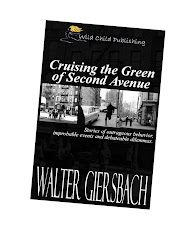I was watching Ron Howard and Richard Dreyfus in the 1973 film, American Graffiti the other night. I noticed how music set the theme of the high schoolers’ last night together. There was the coffee shop jukebox, the car radios and the 45 rpm records playing such hits as “At the Hop.” Where are they now? Not the students, but the records and jukeboxes?
Today’s kids have their phones in
hand and plugs in their ears to stay connected.
I grew up listening to music on 45
rpm discs, snorting at my folks’ old RCA 78 rpm record player in a giant piece of
furniture. But then we were all saved by
the cassette tape back in the ‘60s. Oh,
there was the eight-track tape cartridge that disappeared rather quickly. Singers who were recorded only on eight-track
were soon orphaned, never to be heard from again.
This is the speed of
technology.
In 1965, I was working at Western
Electric up in the Kearny, NJ, Meadows.
AT&T introduced the Touch Tone while I was there, and asked visitors
how much quicker they could use the new technology. Well, for me, I found I was making three
wrong numbers in the time it used to take to make one. (Later I wondered why we continue to say
we’re “dialing” a phone number?)
My trouble is that I like old stuff
and feel a kind of loss when those objects disappear, My grandmother’s mechanical carpet sweeper with
a wooden body was an architectural beauty.
My Dad’s brace and bits are still terrific for drilling boards. And Mom’s cast iron frying pans are good for
another century.
I know this dates me, but I started
working as a cub newspaper reporter using a Royal manual typewriter and a Speed
Graphic camera that could have been the property of Superman’s Clark Kent.
It’s difficult playing catch-up
when the world is accelerating. I tried sharing
my CDs with my daughter, knowing she liked certain artists. But she said, “No more CD player at home. No phonograph either. We stream everything from our phones.”
Okay. I understand, and I can get with the
program. All I have to do is get one of
the kids to bail me out when the computer acts crazy and files disappear. Then I go back to my old-timey music and
typewriter.




